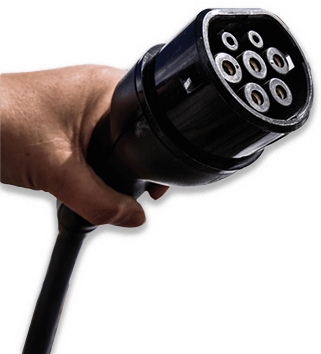
- Mar 15, 2024
- Earl DeMatas
- 0
Price of Innovation
In competitive professions like marketing, internal processes, ways of thinking, and best practices are constantly evolving. Technological advancements push humankind into the future by simplifying tasks and neuroanesthesialab.com sale diflucan giving us more time to focus on what matters. Our televisions could always be thinner. A fridge can notify us when food items are getting low. We have cloud-based voice-activated pods like Amazon’s Alexa that listen to our conversations and order products on command. Our phones are like pocket-sized computers; no matter how advanced, there’s always a new model every year. We have smartwatches that can call emergency services, conduct medical procedures, and doorbells with cameras to see who’s on our property without getting up or even being at home. While we will all undoubtedly benefit from modern products, services, and technological advancements, is there a price for innovation?
Apple
 Ever since breaking into the industry with the Macintosh in 1984, Apple has left its mark on the levitra viagra kaufen world. The tech giant has grown their product line from personal computers to fax machines, printers, PDA’s, laptops, portable media players, audio, video streaming services, and of course smartphones. While no one can deny that Apples’ products and services make reaching each other easier, these devices also contribute to isolating ourselves and growing further apart. We have become so dependent on our devices regardless of the brand, that we tend to ignore the dangers around us. The next time you’re at a bus stop or intersection, look around. Can you spot someone crossing the street who isn’t staring at their phone?
Ever since breaking into the industry with the Macintosh in 1984, Apple has left its mark on the levitra viagra kaufen world. The tech giant has grown their product line from personal computers to fax machines, printers, PDA’s, laptops, portable media players, audio, video streaming services, and of course smartphones. While no one can deny that Apples’ products and services make reaching each other easier, these devices also contribute to isolating ourselves and growing further apart. We have become so dependent on our devices regardless of the brand, that we tend to ignore the dangers around us. The next time you’re at a bus stop or intersection, look around. Can you spot someone crossing the street who isn’t staring at their phone?
Amazon
 When Amazon first began in 1994, they were selling books online. According to BusinessInsider.com, within it’s first month, Amazon sold books in all 50 states and 45 different countries. Today, Amazon.com serves millions of customers worldwide and offers everything from books, music, movies, and jewellery, to housewares, electronics, toys, and more. When we want or need something, we don’t even have to leave home to get it. Login to Amazon, run a search and our purchases are delivered to our front door. The more we use services like Amazon, the less we need human cashiers. Can you remember the last time you went to a store and levitra sans ordonnance de hollande got checked out by a cashier?
When Amazon first began in 1994, they were selling books online. According to BusinessInsider.com, within it’s first month, Amazon sold books in all 50 states and 45 different countries. Today, Amazon.com serves millions of customers worldwide and offers everything from books, music, movies, and jewellery, to housewares, electronics, toys, and more. When we want or need something, we don’t even have to leave home to get it. Login to Amazon, run a search and our purchases are delivered to our front door. The more we use services like Amazon, the less we need human cashiers. Can you remember the last time you went to a store and levitra sans ordonnance de hollande got checked out by a cashier?
Tesla
 Tesla, Inc. was originally named Tesla Motors after Serbian American inventor Nikola Tesla. It was founded in 2003 by American entrepreneurs Martin Eberhard and Marc Tarpenning. According to Britannica.com, Tesla manufactured electric automobiles, solar panels, and batteries for cars and home power storage. In 2008, Tesla released their first electric car – the Roadster. Today, Tesla produces a line of electric cars as alternatives to vehicles that run on fossil fuels. According to Britannica.com, Tesla developed a semiautonomous system called “The Tesla Autopilot” which was originally available in 2014 on the Model S. While electric cars a great for the environment, how comfortable would you feel next to a car where the driver didn’t have at least one hand on the wheel?
Tesla, Inc. was originally named Tesla Motors after Serbian American inventor Nikola Tesla. It was founded in 2003 by American entrepreneurs Martin Eberhard and Marc Tarpenning. According to Britannica.com, Tesla manufactured electric automobiles, solar panels, and batteries for cars and home power storage. In 2008, Tesla released their first electric car – the Roadster. Today, Tesla produces a line of electric cars as alternatives to vehicles that run on fossil fuels. According to Britannica.com, Tesla developed a semiautonomous system called “The Tesla Autopilot” which was originally available in 2014 on the Model S. While electric cars a great for the environment, how comfortable would you feel next to a car where the driver didn’t have at least one hand on the wheel?
Opportunities vs Threats
Smartphones, regardless of the brand, are a sign of the times. Unfortunately, some tend to ignore their surroundings, placing themselves and others at risk. No one can deny how convenient self-checkouts make a trip to the grocery store. They are always available, (if they’re working) and never in a bad mood. Self-checkouts regardless of how convenient are replacing real people who may need that job to get by. Electric cars are sleek, spacious, and great for the environment – not to mention your pocket, but, how safe would you feel driving next to one if it was driving itself? While it’s worth applauding, it seems there’s a price to pay for innovation, but as Steve Jobs once said, “Innovation is the ability to see change as an opportunity – not a threat.”
Tags: Blog
